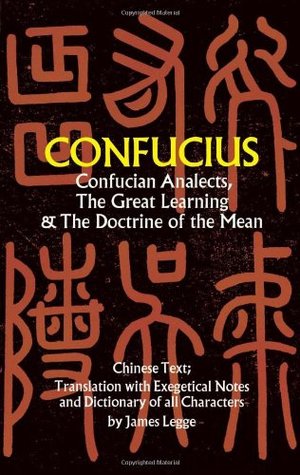Often when developing new domains in the field of apithology the greatest surprise is how there are only one, two (or none) prior mentions of its central concepts. We search for word-phrases like ‘humanity nurturance’, ‘generative potentials’, ‘humanity inquiry’, or ‘the antonym of pathology’ – and have found in the past little of prior reference.
From this process of checking with the global Gestalt prior to claiming something new, the book ‘Loving Humanity, Learning, and Being Honored‘ by Norman B. Sandridge (2012) came into my possession.
Robotic searches for apithology concepts such as ‘humanity learning’ usually yield only conjunctions in mis-placed grammar, like: ‘… Humanity. Learning‘ [1.], or ‘… learning, humanity‘ [2.] or ‘… Humanity: Learning [3.]…’ .
This time the source of the conjunction is a beautiful expose of the foundations of leadership of Xenophon (c. 430 – 354 BC), the Athenian-born military leader, philosopher, and historian, taking its learnings from the biographic allegory of the Education of Cyrus (the Cyropaedia) [c 370 BC].
The exposition of the traits of the great Persian leader, include considerations of wisdom, restraint, justice, courage, honor, modesty, diligence, strength, pity, generosity, fondness, curiosity, self-awareness, order, discipline, prudence, piety, trust, openness, gentleness, and attentiveness (to name a few). The complications of leadership are not ignored, nor are the problems arising from a ‘love of learning’, including: distraction, pointlessness, manipulation, unintelligibility, and practical weakness.
.

However, in this account all virtues are centered around a ‘loving of humanity’, a ‘loving of learning’ and a ‘loving of being honoured.’ – as a ‘tripartite, alliterative, and superlative formulation’ (Sandridge, 2012, p. 15) which in conjunction provide an ‘ethical equality’ in ‘apparent harmony’ (p. 121-2). In one part, there is the exciting speculation of the combination of just two of the fundamental traits of loving, humanity, and learning:
“In some cases, a derivative trait may arise from the coordination of two fundamental traits: the love of learning and the love of humanity seem to produce a more just and gentle Cyrus; and the love of honor and the love of learning seem to make him more pious and loving of beauty (order).”
(p. 77 – Chapter 3: On the Fundamentality of Philanthrôpia, Philomatheia, and Philotîmia)
By implication, this conjecture also suggests the effects of the absence of any one of these virtues from the trinity of inclusivity – as is frequently done in apithology pedagogy (known as deriving the Eight Expressions). This combination of traits, and their different resultants, reminded me of a parallel in the Six Imperatives in the Analects of Confucius (c 551–479 BC).
It is always difficult, if not problematic, to reconcile diverse translations of works into English of non-English (and non-Western) texts [4.] . From several different alternatives* (all with nuances of merit), here is my ‘in this case preferred’ translation of Analect 17.8 (which includes the delicious idea of the obfuscations of virtues as ‘becloudings’):
XVII: Ch VIII – “Knowledge Acquired By Learning, Is Necessary To The Completion Of Virtue By Preserving the Mind from Being Beclouded”
“The Master said, ‘Yu, have you heard the six words to which are attached six becloudings?’ Yu replied ‘I have not.’ ‘Sit down and I will tell them to you.’ … There is the love of being benevolent without the love of learning; the beclouding here leads to a foolish simplicity. There is the love of knowing without the love of learning; the beclouding here leads to dissipation of mind. There is the love of being sincere without the love of learning; the beclouding here leads to an injurious disregard of consequences. There is the love of straight-forwardness without the love of learning; the beclouding here leads to rudeness. There is the love of boldness without the love of learning; the beclouding here leads to insubordination. There is the love of firmness without the love of learning; the beclouding here leads to extravagant conduct.” [James Legge ~ Translation, 1893]
.

This rare form of exposition, that combines six dimensions as a set, and shows how the presence of an absence in a virtue leads to a personal and societal dysfunction, reflects a more contemporary practice in apithology of the conjunction of presences and absences in five relational tensions.
This form in apithology (known as the Five Rationals) is used in the pedagogy of the generative (and degenerative) potentials as unfoldments in a humanity nurturing society. The field of generative humanity learning (ie apithagogy) has as its premise how a humanity learns in a nurturance of humanity becoming. Understanding the essence of presences of presences in relational tensions is foundational to this holding.
This raised for me the question that if apithology were to provide parallel guidance, not just for military conquest, rule of a state, or contribution to feudal society, what is the apithagogy set for the virtues of learning in contribution to a humanity?
The apithology equivalent to the instructions of the ‘Six Imperatives’ are:
- Preparation ~ without learning is Obstinacy;
- Process ~ without learning is Futility;
- Potency ~ without learning is Disdain;
- Purpose ~ without learning is Perversity;
- Premise ~ without learning is Foolishness;
- Prosperity ~ without learning is Apathy.
In apithology theory, the first five imperatives are tensions in the dimensions of Body, Agape, Speech, Eros, Mind and the sixth is the conjunction of all, as a meta-resultant. Only the holding of all five holds holding for future forming.
My feeling about this, realising all must be present for benefit to occur in any dimension, is it makes humanity learning hard (if not impossible) for humans – and perhaps it is this. Loving humanity for Xenophon, or the practice of ren for Confucius, is not done piece-meal or to satisfy oneself, but is an act of extension and cultivation, a curation of self, so as to be fully in service, as a life-long process without completion.
Which of the generative humanity learning dimensions do you leave out, or make non-generative? For to have obstinacy (of Body), futility (of Agape), disdain (in Speech), perversity (of Eros) or foolishness (of Mind) is to generate an apathy for life, both one’s own and for all Life.
Some stark examples may help take our appreciations of the Six Apithology Imperatives (as absences) to a place beyond ourselves (for just a moment):
- When we undertake a task (e.g. global climate change response) without adequate capability and in the absence of learning (ie the composition of the ecology of conceptions) our change efforts at best result in obstinacy.
- When we follow a set process with steps in a pathway (e.g. approval of vaccines for distribution) without appropriate meta-reflection and in the absence of learning (ie the protection of the vulnerable) the effects result not in normalcy, only futility.
- When we act for the potential benefit of others (e.g. relocation of environmental refugees) without approaching them within intimacy and in the absence of learning (ie the dislocation of family and social cohesion) the effects are cultural separation and disdain for the plights caused by our own injunction.
- When we aspire to accomplish a purpose (e.g. providing advanced technology in early education) without a humanistic understanding and in the absence of learning (ie the social isolation of ‘aboutism’ in unembodied experiencing) the effects are not accelerated content consumption, only the perversity of psychological withdrawal.
- When we opine as to the prosperous (e.g. wealth building in advancement) without a humanity-centric ethos and in the absence of learning (ie non-distribution of profit in exploitation) the effects are an obliviousness to the loss of humanity potentials, to which all inevitably become apathetic.
The young military commander Xenophon was entrusted with the care of thousands of troops [5.]. Confucius saw the effects of impropriety conducted by an unchallenged aristocracy in comfort. We are faced in universal compassion by global disparity having under-utilised a whole planet’s life abundance.
Whatever the imperative that generates an inquiry into virtue … in the absence of learning, those without humanity reflexion, will reflect (and always affect) the totality of us.
Yet for Confucius, the principle belief that if only a few demonstrated the pursuit of life-long virtue, their emulation would change all society – eventually became evident.
In apithology practice there is a similar hope, based not on hopefulness, but on the efficacy of new discoveries … and the re-discovery of our humanity.

*Alternative translations of the Six Imperatives [Words/ Qualities/ Phrases] include: A. ‘ren’, knowledge, faithfulness, straightforwardness, valor, incorruptibility [Eno, 2003]; B. kind[ness], wisdom, trustworthiness, candor, boldness, persistence [Mueller, 1990] C. benevolence, cleverness, trustworthiness, forthrightness, courage, unbending strength [Lau, 1979], D. kindness, knowing, honesty, straightforwardness, daring, strength of character [Soothill, 1910].
